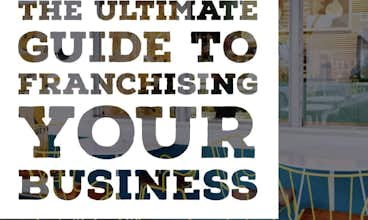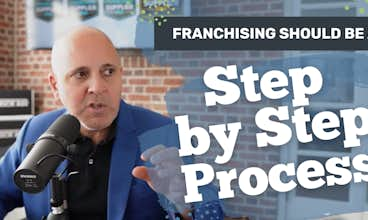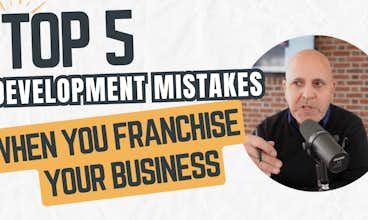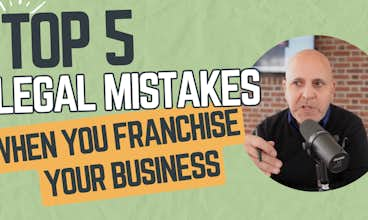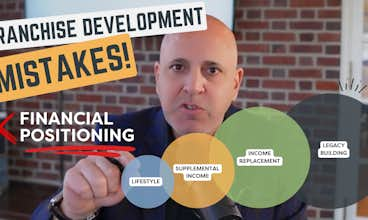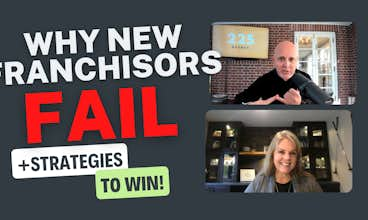Franchising Your Business in Canada
Americans and Canadians share common media, brands, and a border, so expanding your franchise reach up North may seem like a natural progression for your business’ growth. What a lot of American entrepreneurs don’t know, though, is that Canada is also right behind the United States as the second largest market for franchising. When tapping into this potential, you–the franchisor–need to follow certain steps to ensure the transition is successful.
With many U.S. based franchisors looking to expand into Canada or brands already established in Canada looking to grow even further, now is the time to learn about the international franchise-selling process. Charles Internicola, Esq. interviews Frank Robinson, Esq. of Cassels Brock & Blackwell about franchising in Canada.
Robinson shares the appeal of Canada for franchising, the steps necessary to broaden your brand’s reach, and common mistakes franchisors unfamiliar with Canadian law make.
The steps to franchising your business in Canada include:
Create Canadian Franchise Disclosure Document
Include Financial Performance Representations (Item 19)
Form a New Entity in Canada or Use U.S. Franchising Entity
Protect Your Trademarks and Intellectual Property
Trademark and Intellectual Property Protection
Avoid Common Mistakes
1. Create Canadian Franchise Disclosure Document
In the United States, franchising is regulated at the federal level by the Federal Trade Commission (FTC). The FTC has a ‘Franchise Rule’ requiring all franchisors to fill out a 23 item Franchise Disclosure Document (FDD) detailing the history of transactions, fees, rules, restrictions, financial information, etc.
There are no federal franchising statutes in Canada in the same way the United States has the FTC. Federal laws can apply to matters relating to tax and intellectual property statutes, but the individual provinces provide statutes on most matters. 80-90 percent of said statutes are the same across the board, but there are small differences like what needs to go into the disclosure document or the specific laws of the province that franchisors need to be aware of. In fact, only 6 of the 10 Canadian provinces even require franchisors to file an FDD.
Another benefit of filing in Canada is that there are no registration requirements or regulatory oversight administrations that need to be consulted with or provide approval. For the provinces that require the FDD, the information needed is very similar to its American counterpart. After submitting the FDD to the province, you only need to wait 14 days before signing any agreements or accepting money from the franchisee.
2. Include Financial Performance Representations (Item 19)
Franchisors can use financial statements as long as they meet certain conditions laid out by the province. Statutes even permit the use of a foreign financial statement (such as Item 19) as long as they are at least equivalent to Canadian accounting standards or meet international standards.
The Canadian version of Item 19 is the Financial Performance Representation (FPR), and like Item 19 in the United States, it is voluntary. If you are an American brand with no experience in Canada, you need to decide whether or not it is ‘reasonable’ to put an FPR in a Canadian FDD. This will depend on the type of financial information you have, the reliability of the information that you have, and the scope and depth of the information that you have on how similar the Canadian-American markets may be. ‘Reasonable’ is a legal standard in this case, as there are repercussions for providing misleading or false expectations of success translating over the border.
That being said, it is becoming more and more common for emerging American brands to use their Item 19 as an FPR in Canada. Even if you feel as though your United States-filed FDD meets Canadian standards, you should still get proper tax advice before you enter the Canadian sphere.
3. Form a New Entity or Use U.S. Franchising Entity
Although many franchisors continue to use their U.S. franchising entity when they enter the Canadian market, you can also create an entirely new entity for Canadian franchisees.
Once money flows over the border, you and your franchisee are now subject to international tax issues including withholding and compliance. For example, the LLC might form a subsidiary that is a Canadian entity incorporated into a province or a federal corporation. In rarer cases, the LLC may even form a new American subsidiary that will franchise exclusively in Canada.
This is certainly complex, but the good news is that should you decide to use your preexisting American entity, you can change your mind later as long as your FDD allows for flexibility in the future. A flexible FDD should plan for possible corporate restructuring and allow assets and contracts to be moved around. It is important to consult with an accountant that can adopt or reinterpret American financial statements to conform to Canadian standards.
4. Protect your Trademarks and Intellectual Property
One of the most important aspects of franchising is protecting your trademarks before announcing moving into Canada. Making the news of your expansion public before ensuring trademark rights are in order could result in someone ‘squatting’ on, or legitimately registered your same marks in Canada, thus preventing your company’s move into Canada with your name and logo. ‘Burger King’ in Australia is called ‘Hungry Jacks’ for this exact reason.
According to Frank Robinson, Esq. franchisors should protect their trademarks as broadly and as early as possible in the international markets that you may one day want to enter.
Even if you hope to be bought up by a private equity group, their aim is to buy the business and grow it. If you show buyers that you have reserved your trademarks in international markets, you are opening the path for growth. This will be seen as a true benefit. Alternatively, not protecting your intellectual property can result in buyers finding out that Canada is blocked because the trademarks are unavailable.
Preemptively obtaining trademarks and trademark searches in Canada will cost a few thousand dollars. If this is not in your budget, you can still offer a franchise on the basis of having no trademark rights whatsoever, so long as you disclose this fact in your FDD. This is not recommended, though, as this path may prevent you from being able to easily sell franchises should your IP have problems associated with it.
Need another reason to register your trademarks? Franchisees are far more likely to sign a deal if they know they are not going to run into any issues with trademark infringement.
Even if you're not going to expand any time soon, having protected IP is an asset for you and any future owner of your brand.
5. Avoid Common Mistakes
What are common mistakes or pitfalls that franchisors make as they enter the Canadian Market?
Robinson replies that his American clients will often regard Canada as ‘another state on the map’ when–in reality–Canada operates differently.
He adds, “There is a significant amount of crossover with the documents and the process in Canada and the United States, but there needs to be enough respect given to the differences in the way that the laws are set up. You do need to stop and get educated, and you need to accept some training from someone who knows what they're doing in Canada to just smooth out the edges.”
Recap
When making the decision to expand your business into Canada, consider the points made by Robinson. As for your corporate structure, what entity are you going to use? You can use your current LLC or create a new one for the purpose of international franchising.
When it comes to intellectual property, ensure that you have taken every measure to protect your trademarks.
Finally, know that determining the timeline that starts with making the decision to enter the Canadian space and ends with actually signing a franchise can vary. It can be 3-4 weeks or even 3-5 months depending on your franchise system.
To contact Frank Robinson of Cassels Brock & Blackwell click here or email frobinson@cassels.com.

